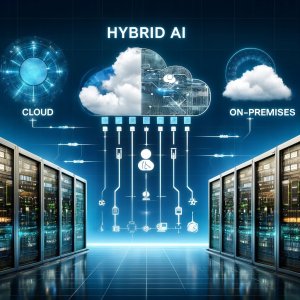
Artificial intelligence (AI) has come squarely into the mainstream of enterprise development. The range of sophisticated AI development tools continues to expand.
Though AI is still unfamiliar to many developers, many vendors are rolling out tools that will bring more programmers into this field. Signs of AI’s democratization are everywhere. For example, this week at IBM Think 2018, that vendor made announcements that addressed key requirements among enterprise developers who need a better on-ramp to this new era of intelligent apps: an integrated development environment (IBM Watson Studio), a bundled set of pre-optimized modeling frameworks (IBM PowerAI in IBM Cloud), availability of prepackaged training data (IBM Watson Data Kits), and on-demand cloud-based training services (IBM Deep Learning as a Service).
As a further proof-point for AI’s democratization, I just came across this Medium article from a startup AI tool vendor called Deep Cognition. I’m embarrassed to admit that I hadn’t heard of them before this, considering that a few months ago I published what I considered a comprehensive survey of the market for tools that automate the AI development pipeline. I’m well familiar with such purveyors of automated machine learning tools as DataRobot, whose Chris Devaney appeared on theCUBE a few years ago at Big Data SV.
Be that as it may, Deep Cognition will be launching version 2.0 of their Deep Learning Studio next week at NVIDIA’s GTC 2018 conference. The vendor’s integrated development environment addresses all the hot buttons that will encourage programmers everywhere to take up deep learning:
- Visual: The tool provides a visual, drag-and-drop interface for easy design, editing, and training of deep learning models.
- Open: The tool, which is available in desktop and SaaS offerings, is free of cost, is available without limitation to AI developers worldwide, enables import of model code from other tools, and supports development in all popular deep learning frameworks.
- Speed: The tool guides the development of deep learning networks without users needing to have prior knowledge of this discipline. It incorporates pre-trained deep learning models and provides assistive features that simplify and accelerate the model development process. With a single click, developers can deploy their trained deep learning models on local or remote machines. Likewise, the tool enables the models to be deployed with a single click as a REST API or as a fully functioning Web application.
- Automation: The tool automates comparisons of model versions and model hyperparameters. During the development lifecycle, this facilitates tracking of changes to models. This, in turn, enables developers to pinpoint which changes made the most difference in the results attributable to deployed deep learning applications. The tool automatically saves each model version. It also automatically tunes hyperparameters to improve performance.
I won’t be able to catch GTC 2018, but if you’re in southern California early in the week of April 9, you can catch me at Cloudera’s Analyst and Influencer Conference in Santa Monica. As mentioned in this Wikibon report from last year, I’m impressed with Cloudera Data Science Workbench and looking forward to an update.


